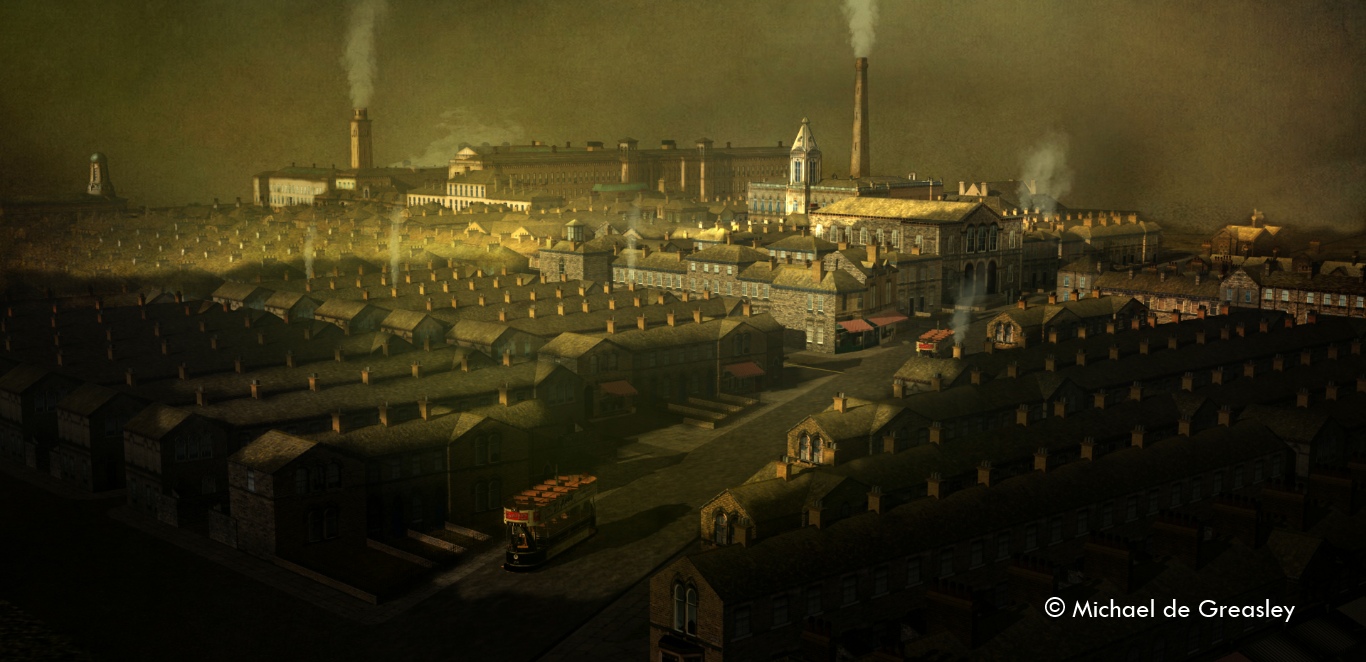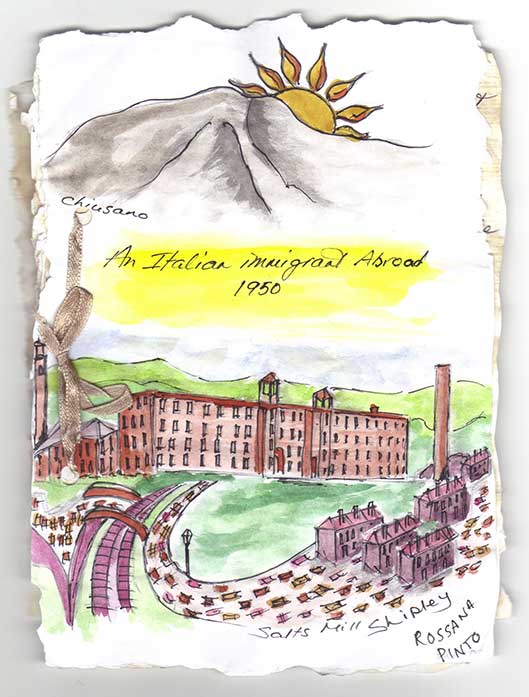Transcription: Assuntina's story
Assuntina De Matteis (nee Anzalone): During my three years in Yorkshire, I was made to feel welcome. The people embraced the Italians with warmth and kindness. This is my story. August 2014
Download the beautiful document that tells Assuntina's story >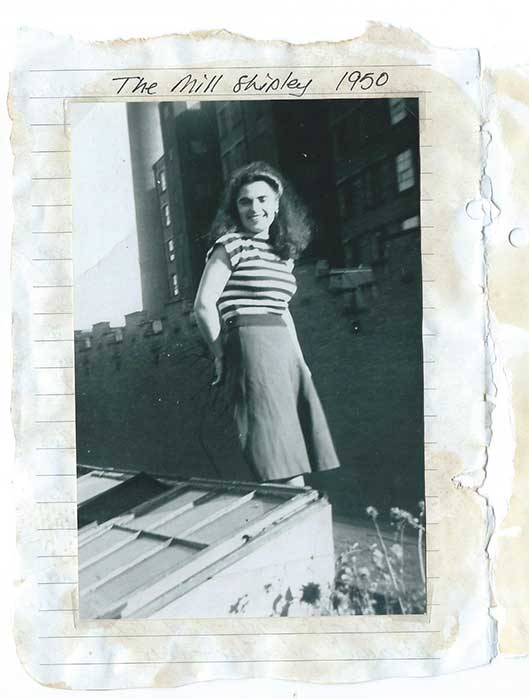
Assuntina Anzalone, Shipley, 1950
Reflecting upon my life in recent days has spurred me to put pen to paper. My mind drifts back to March 1950 when immigration beckoned for a better life and hope for the future. If I had had the wisdom then of what I have now in all my 83 years, I would never have left my beloved hill top village of Montefalcione where the bell tolls as dawn breaks and the sun slowly rises from behind Chiusano.
My memories still vivid, I can still see my mother, the sadness reflecting in her eyes, yet giving me strength to realise my dreams and confront my journey. Laden with a heavy heart I began my journey on 20 March 1950. My worldly possessions consisted of only one suitcase and with the hum drum sound of the train, the familiar Italian landscape gradually disappeared in the distance.
I quite clearly remember closing my eyes and awaiting my destiny. The journey was to take a couple of days stopping at various places. This gave me the opportunity to write postcards to my mother, reassuring her I was fine but missed her. I did not disclose how anxious I really was and how much my heart was breaking until I left for Milan. I arrived in England on 22nd March, 1950, aged 19.
My first impression of the British landscape was how bleak, cold and unwelcoming it looked and felt. The recruitment consisted of groups of young women from different parts of Italy. We were put into small groups and my first port of call was in Shipley in Yorkshire, to be employed in the wool mill. We were accommodated in hostels nearby. The hostels were very clean and I shared a room with a couple of other Italian girls, one whose name was Carmelina Casale and who was to play a special part in my life.
I recall my journey to Yorkshire as being one of the most reflective journeys I have ever taken; it gave me time to think about my family, in particular my widowed mother, who had given me hope and understanding to endure such a transition. The tear drops still seem so vivid. Deep down it must have been a wrench for my mother to let me go. I was her youngest child.
As the train made its way to Yorkshire, I recall thinking, ‘Where am I? The buildings are so dark and gloomy and why isn’t anyone smiling?’ Many years later I was to change this view of Yorkshire and its people. My first impression of the mill as it stood in all its glory was, what a grandiose building it was. It rose above the Yorkshire landscape like a dominant protector of the village.
It was a daunting experience and I was full of mixed emotions: frightened, apprehensive, confused – yet excited at the prospect of learning a new skill, earning a wage and eventually returning home to Italy – or so I thought.
The workhouse was very noisy as the looms were continuously in motion, so it was a relief when the end of the day arrived, to enjoy a little silence and some fresh air – things we seem to take for granted.
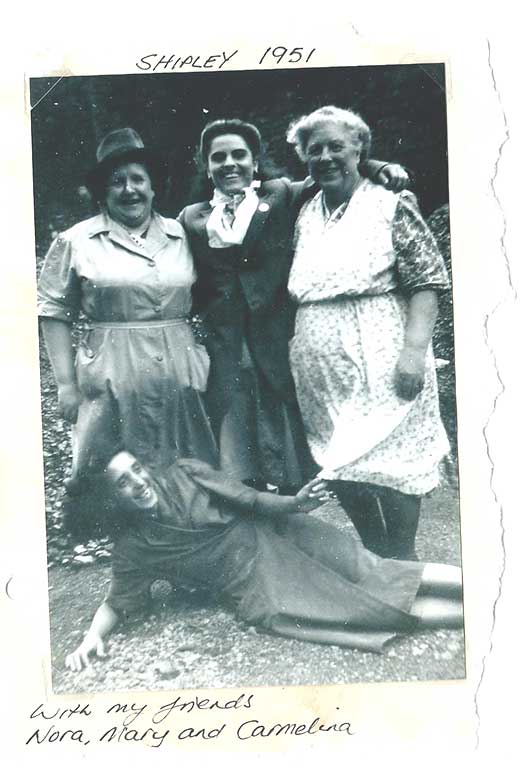
Assuntina (centre) with Nora, Mary and Carmelina (on ground)
I was not conversant in the English language. However, I started to make a few English friends, in particular two older ladies, Mary and Nora, who took me under their wings and slowly I began to pick up a few words of English and life became more bearable. My friend, Carmelina Casale, had a brother called Marciano who had also emigrated and was based in Sibson near Peterborough. He had been recruited with many others for the brickyards. One day she asked if I would like to go to Peterborough with her as she was meeting her brother, so we took the train down and were met at the station by Marciano and a very impressionable and handsome friend of his. His name was Antonio who eventually was to become my husband.
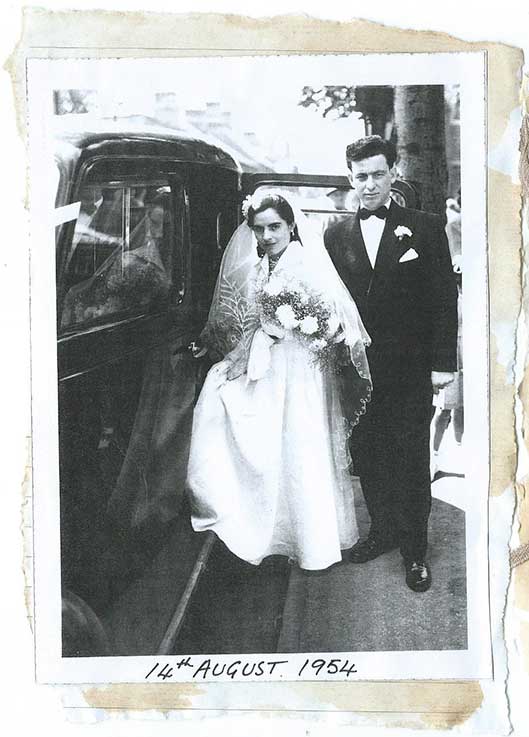
Assuntina and Antonio De Matteis, 14 August 1954
On the 14th August 2014, we celebrate our 60th wedding anniversary.
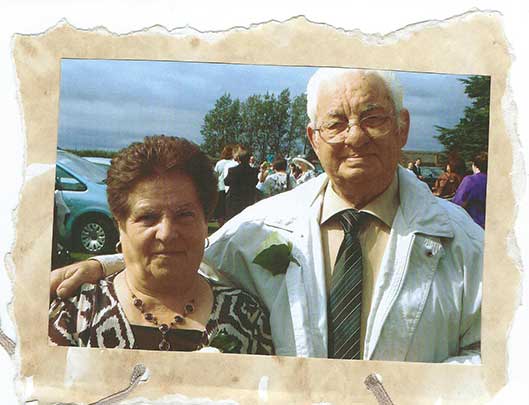
Assuntina and Antonio De Matteis
